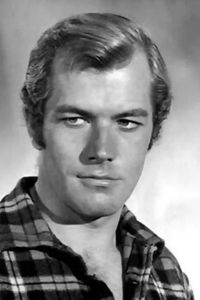Parker's life journey began in the vibrant city of Lafayette, Louisiana, a place that would later shape his artistic inclinations. However, his formative years were spent in the sun-kissed metropolis of Los Angeles, California, where the allure of the entertainment industry beckoned him. As a young individual, Parker's aspirations were focused on a career in the performing arts, and by the 1950s, he had begun to take his first tentative steps in the music world.
Initially, Parker's musical endeavors centered around the electric guitar, with which he collaborated with several prominent blues and R&B bands of the era. His professional journey commenced with Otis Williams and the Charms, a notable group that provided him with valuable experience and exposure.
Parker's musical endeavors continued to flourish as he became a regular performer at the iconic Apollo Theater in the heart of Harlem, a neighborhood renowned for its rich cultural heritage. Moreover, in the late 1950s, he embarked on a series of concert tours alongside music legends Chuck Berry, Buddy Holly, and Little Richard, further solidifying his reputation as a talented musician. As the early 1960s arrived, Parker made the decision to relocate to the Washington, D.C. area, where he established himself as a fixture on the local blues club circuit.
Parker, a talented musician, took to the recording studio in 1961 to lay down a single for the esteemed V-Tone label. The result was "Watch Your Step", a composition penned by Parker himself, which drew inspiration from the iconic sounds of Dizzy Gillespie's "Manteca" and Ray Charles' "What'd I Say". Released to the masses, the song managed to chart at a respectable no.51 on the Billboard Hot 100, although it failed to make a significant impact on the national R&B chart.
As the fame of the song continued to soar, both domestically and internationally, he embarked on a touring expedition to the United Kingdom in the year 1968, during which he recorded his next single, "It's Hard But It's Fair", a production collaboration with the renowned music producer Mike Vernon, and released it on the esteemed Blue Horizon record label.
For a remarkable span of twenty years, Parker dedicated himself to a rigorous performance schedule, predominantly within the Washington D.C. metropolitan area. By the dawn of the 1990s, he began to reignite his passion for recording music, shifting his focus towards a more expansive audience.
Bobby Parker, a remarkable individual, breathed his last breath on October 31, 2013, due to a sudden and unexpected heart attack, marking the end of his life at the ripe age of 76.










